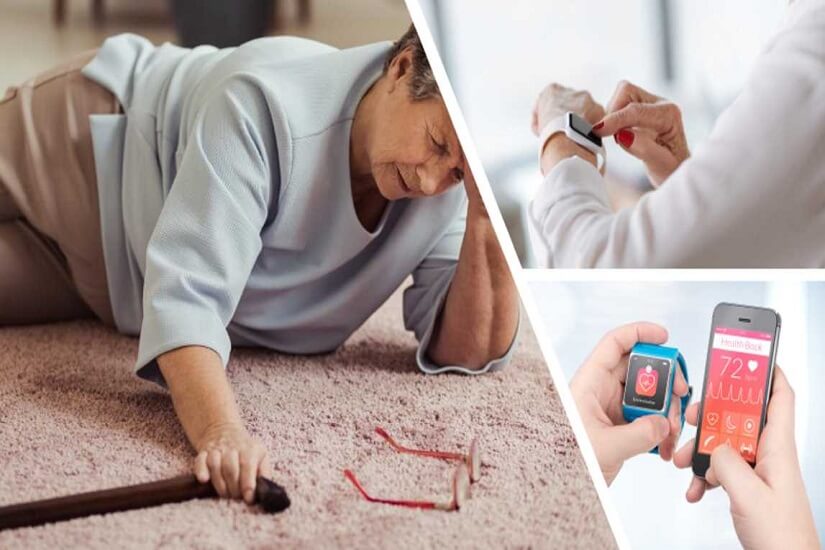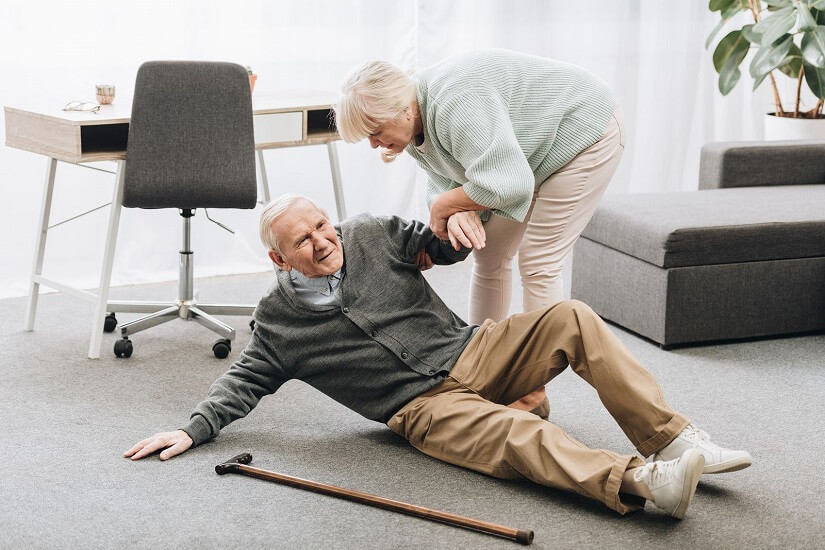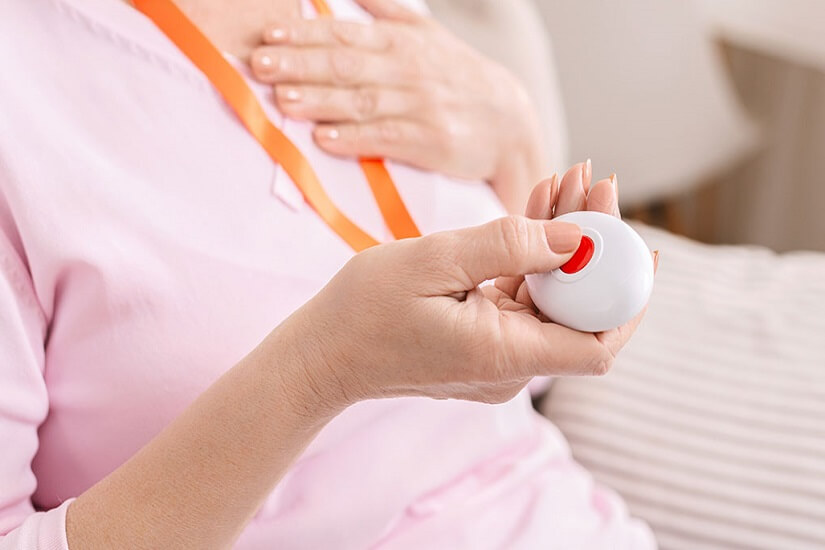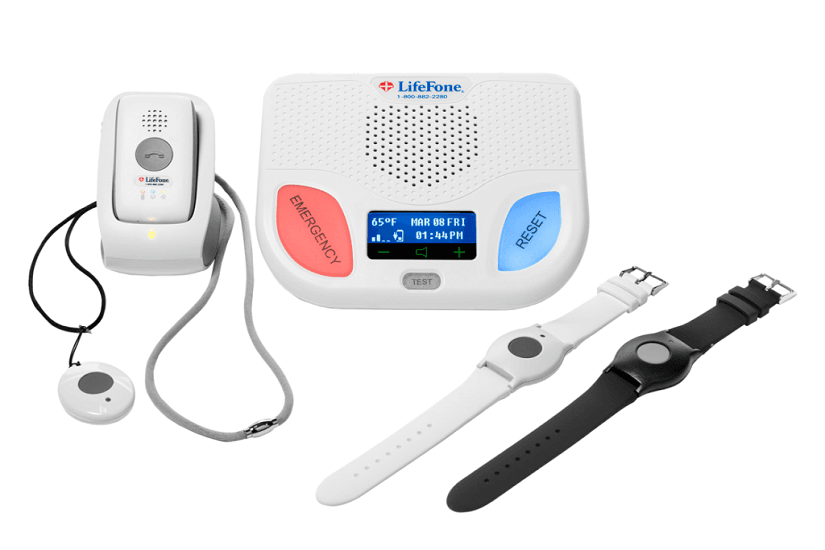“I’ve fallen and I can’t get up!” was a catchphrase in popular culture in the late 1980s and early 1990s. This famous remark was first broadcasted in a TV commercial for LifeCall, a medical alert and protection firm. In 1989, LifeCall began airing commercials in which an elderly woman, identified by a dispatcher as “Mrs. Fletcher,” falls in the bathroom and activates the medical alert pendant. “I’ve fallen and can’t get back up!” Mrs. Fletcher screams as she collapses. The dispatcher then informs her that assistance is on its way.
This phrase became well-known. In fact, many people recall these words if you bring up personal medical alert systems. Edith Fore, the woman who turned a hip injury into a famous television commercial line, began creating advertisements after falling, hurting her head, and activating her medic alert. When LifeCall replied, she said, “I’ve fallen and I can’t get up,” she started a mini cultural phenomenon.
More than a Funny Phrase
This iconic, unforgettable remark from a 1980s TV commercial for life alert services has since become a staple of many comedic routines. It may have been amusing because it was so badly done. However, the subject it addressed was serious.
Since the 1970s, medical alert systems have spared thousands of seniors from pain and perhaps fatal medical conditions. Medical alert systems for seniors, also known as personal emergency response systems, provide quick and easy means for seniors who live alone to seek aid in the event of an accident, such as a fall, a medical issue, or another situation that could necessitate an ambulance.
Most plans include a 24-hour call center as well as incident notification to chosen contacts.
LifeCall: Fall Detection Device History
Life alert systems date back to 1972 when a psychology professor named Andrew Dibner concieved of this technology. Mr. Dibner believed that such a device would save many seniors’ lives.

LifeCall has been in place since 1974. It is an American corporation with a long history of delivering outstanding monitoring services and effective emergency warning systems to health care institutions that cater to the elderly and individuals around the United States for use both indoors and on the go.
With LifeCall medical alert systems, you have immediate access to assistance at the touch of a button. They have six medical alert systems to fulfill the demands of their clients:
- LifeCall with FallAlert™,
- LifeCall Mobile FallAlert™,
- MobileAlert™,
- MobileAlert Pro™,
- LifeCall Cellular,
- LifeCall Standard.
A base monitoring unit with a personal medical alert button is included in every traditional landline-based system.
All of the devices described above have received consistently positive feedback in the consumer market.
Who To Call When You’ve Fallen And Can’t Get Up?
If you have a medical alert system use that, or call 911 or a family member for assistance using the device or a mobile phone.

How To Get Up From A Fall: Senior Step By Step Guide
Many people ask us what to do if an elderly citizen falls. And believe us when we say that it’s a reasonable concern. according to the CDC, each year more than 1 in 4 persons aged 65 and older experience a potentially dangerous fall. Statistics also show that falling once increases the likelihood of falling again.
Even if an older adult is not seriously hurt in the fall, resting on the floor for an extended period of time or getting up awkwardly can result in extra injury. Someone who is unable to get up or summon assistance, for example, may experience hypoglycemia, dehydration, pneumonia, or bed sores.
Before Moving, Always Check For Injuries.
Seniors should only get up if they are not wounded or dizzy as a result of the fall. They should also feel confident in their ability to stand up on their own.

If you discover that your elderly relative has been hurt in a fall, don’t move them because this could aggravate their injuries. Here are some tips that will help them in case they experience a fall:
- There should be no sudden movements. To check for pain, you should start to move your hands and feet and arms and legs slowly.
- If they don’t have any injuries, you can roll onto their side slowly, starting with your head, going down your body to your feet.
- Try to get yourself into a crawling position. Crawl carefully on hands and knees toward a stable chair or piece of furniture. Don’t rush, and take a break as needed. One by one, place your hands on the chair’s seat.
- Using the chair to support yourself, raise your dominant leg to a 90-degree angle by placing that foot firmly on the floor. One leg should remain in a kneeling position. Using both arms and legs, slowly lift yourself to a standing position.
- Gradually turn around and sit back down on the chair. Before doing anything else, take a few minutes to sit and collect your breath.
What are the Best Devices for Fall Detection?
In an emergency, medical alert systems can assist you or a loved one in recieving quick medical care. Fall detection is perfect for seniors who are afraid of falling or having a health problem when they are alone. Even if the medical alarm button isn’t pressed, this feature automatically alerts medical responders if a person falls. Let’s have a look at the many devices available.

Bay Alarm Medical
It is one of the most dependable and cost-effective medical alert systems with fall detection currently available on the market. These systems are backed by a medical alarm emergency center in the United States that is open 24 hours a day, seven days a week.
With Bay Alarm Medical, you can pick between an In-Home System, a GPS Alert System, an In-Home + GPS Bundle, an In-Car Medical Alert, and a Fall Detection System.
Medical Guardian
Medical Guardian provides a full range of medical alert services and products. From in-home fall alert systems to all-in-one medical alert systems, they have it all. These systems are appropriate for a wide range of lifestyles.
Lively
Lively has a variety of medical alert products to choose from. An emergency pendant or necklace isn’t the only option. Smartphones with emergency alert apps, a mobile alert device, and wearables are all options. As a result, you can select the solution that best suits your lifestyle. These choices are ideal for active, self-sufficient seniors. Lively’s award-winning customer service strategy encourages elders to be more active and independent.
Life Station
Life station medical alert system with fall detection provides 24/7 medical monitoring for seniors living at home alone. This service provides seniors with independence and their caregivers with peace of mind — all for less than $1 per day.
All you have to do with basic systems is plug them in and ask for assistance when necessary. If you are unable to react, the agent will approach your contacts, who will then notify emergency responders. The system has a fast response time and a strong connection. Its portable help button has a limited range outside, so it may be best for those who spend less time away from home.
Life Alert Review:
Who are they?
Since 1987, Life Alert has been a leader in the medical alert market. Because it was one of the earliest firms in the medical alert device market, Life Alert medical alert is frequently the first brand name that comes to mind when people hear the term medical alert system.
On their website, Life Alert says that every 11 minutes, they save a senior’s life from a potential disaster! They have about 600 employees and are based in Encino, California. Every year, Life Alert receives roughly 2 million calls. Life Alert is now nearly twice the size of the majority of medical alert companies.

Life Alert is well-known for its life-saving services. When compared to other leading medical alert firms, however, Life Alert falls short when it comes to the flexibility of its payment plans. This is largely due to its three-year contract policy, as it is the only medical alert provider we looked at that requires consumers to sign a long-term contract. Customers of Life Alert may be responsible for the whole cost of their contract, even if they no longer want or need Life Alert’s services, whereas competing firms do not impose cancellation fees and may even offer partial refunds. Life Alert also has substantially higher-than-average one-time setup fees and does not disclose prices on its website.
Life Alert Features:
| Package | Wellness Checks | Spouse Monitoring | Medication Reminders | Activity Tracking | Lockbox |
| In-Home (Signature Service) | None | Optional with added charge | None | None | None |
| Signature Service and Shower Button | None | Optional with added charge | None | None | None |
| Signature Service and Shower Button and Mobile GPS | None | Optional with added charge | None | None | None |
Spouse monitoring is the only additional optional service offered by Life Alert. Some of the firms in our analysis, such as LifeFone and Bay Alarm Medical, offer spousal monitoring for a low or no additional fee. Almost every other firm also offers a lockbox, which Life Alert does not. If you have an emergency and are unable to unlock the door, a lockbox allows emergency medical personnel to rapidly get your key and enter the building. Wellness checks, medication reminders, activity tracking, location monitoring, and caregiver applications are some of the other features you won’t find with Life Alert.
Pros and Cons:
| Pros: | Cons: |
| The battery life is excellent. The backup life of the base unit is 72 hours, which is significantly longer than many comparable systems. | The website is not particularly user-friendly or informative. Critical information such as cost and contract terms is difficult to come by. |
| You can select an emergency contact, such as a family member or friend, using the family notification service. When you press the emergency button, they are notified. | They make use of pushy sales tactics such as calling for a “free” brochure. |
| Since 1987, they have been accredited by the Better Business Bureau (BBB). | To discover out about costs or contracts, call the toll-free hotline. When you call, an agent responds and asks for your zip code, name, and address so that they may give you the “free” brochure. |
| TMA Award of Five Diamonds (formerly CSAA). This indicates that the business provides a high-quality call center service. | Many alternative medical alert services are significantly more expensive. Bay Alarm, for example, sells a system for as little as $19.95 a month. The most affordable Life Alert plan is $49 per month. |
| It is safe to wear pendants in the shower or bathtub. | There isn’t a system in place to detect falls automatically. |
| HELP button for the shower that is mounted on the wall. | A three-year service contract is required. Other medical alert systems in the home, such as Medical Guardian, have a month to month contracts. |
Who Should Be Aware of Life Alert?
Users of the Life Alert In-Home service can connect to a landline or use a cellular connection at no additional cost. Many medical alert businesses charge extra for in-home systems that have a cellular connection. Having the option to utilize cellular for free keeps things simple for seniors who don’t have a landline and can save them hundreds of dollars each month.

